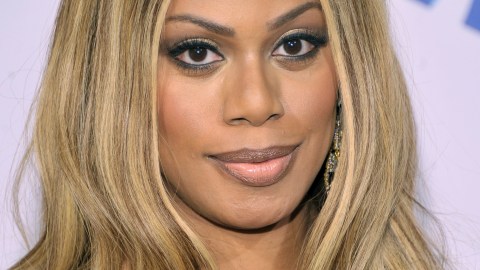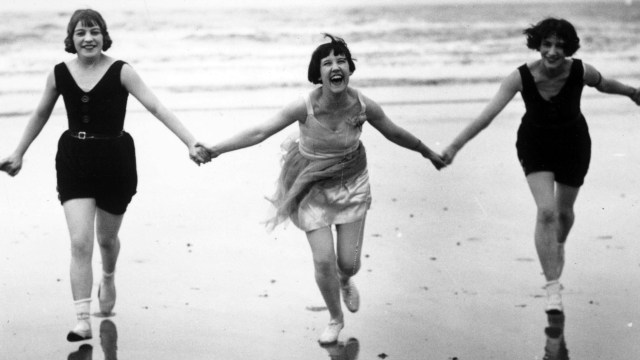Faces of Celebrity Feminism

Pop culture feminism is increasing in prevalence and reach as more celebrities learn what it means to be a feminist. The celebrity world is a magnified microcosm of the world we live in, and the forms of feminism we see there are the same ones we encounter on a daily basis. Over the past few years, feminism has grown in popularity, and this has led the media to put the spotlight on it to sell magazines, get clicks, and earn likes and shares.
The media’s interest is not in spreading the message of feminism, but to sensationalize it by putting celebrities on the spot to see what they will say in response to bait questions. Now, compared to five years ago, more celebrities are embracing the feminist label, proudly proclaiming that they believe in equality. Some are using their platform to teach people about feminism and put it into practice while others are using the label to expand their platforms. When we look at their behavior critically, it is easy to separate the true feminists – even if they are seen as “baby feminists” by the academics – from the capitalist minded opportunists.
Emma Watson
“And if you still hate the word—it is not the word that is important but the idea and the ambition behind it.”
In September 2014, Emma Watson made her feminist debut as UN Women Goodwill Ambassador with her speech at the launch of #HeForShe campaign. While her speech was highly criticized by career feminists, it was ideal for her intended audience – people unfamiliar with or mistaken about feminism, but open to learning more and potentially joining the campaign. Her focus was on men, highlighting the ways feminism is for men as well as women. She used plain language and her own experiences to make her speech resemble a casual conversation with a loved one, and it was effective. She recently announced that she is taking the year off from acting to read and learn more about feminism. She is taking her position seriously, and enthusiastic about expanding her knowledge and sharing it with others.
Amandla Stenberg
Amandla Stenberg, 17 year old actress known for her role as Rue in The Hunger Games, has been patient, articulate, and consistent in her intersectional feminism and social media engagement. Her focus has largely been on cultural appropriation, explaining what it is, what it looks like, and why it is not okay. Amandla has added her voice to the #BlackLivesMatter movement, conversations on black femininity, and a variety of other topics. She, along with Rowan Blanchard, was named 2015 Celebrity Feminist of the Year by the Ms. Foundation for Women.
Taylor Swift
This particular brand of feminism seems capitalist-driven at worst and elementary at best. Everything Taylor Swift has said about feminism has been centered around her own experience. Her actions that are labeled as feminist seem to play into the popularity of feminism rather than genuine belief in the concept and practice. Whether or not it is real, Taylor’s feminism is easy and accessible to her fans. It is evident that she is still learning, working her way through public disasters. A prime example is her 2015 interruption of Nicki Minaj’s valid Twitter commentary on the MTV VMAs nominations, referring to the nuance of race and body type and how they factor into the decision. Taylor quickly centered herself, failing to recognize her own privilege, proving that her feminism has not reached the point of intersectionality.
Joseph Gordon-Levitt
“There’s a long, long history of women suffering abuse, injustice, and not having the same opportunities as men, and I think that’s been very detrimental to the human race as a whole. I’m a believer that if everyone has a fair chance to be what they want to be and do what they want to do, it’s better for everyone. It benefits society as a whole.”
Joseph Gordon-Levitt has shared his definition of feminism and the importance of gender equality to him and the world. He has expressed his view that this is an important conversation, and used HitRECord – a project he started with his brother – to make space for others to participate.
Laverne Cox
“I think transwomen, and transpeople in general, show everyone that you can define what it means to be a man or woman on your own terms. A lot of what feminism is about is moving outside of roles and moving outside of expectations of who and what you’re supposed to be to live a more authentic life.”
Laverne Cox, who plays Sophia on Orange is the New Black, is an LGBT advocate. She speaks on issues of the transgender community, making the connection between them and feminism. As a transwoman of color who has experienced bullying and harassment, she is highly familiar with the need for intersectionality. She often reminds people that there are multiple experiences and she is, by no means, a standard. She espouses the view that there is no one way to be a woman, and we need to respect other people’s ways of being.
Amber Rose
“If I’m laying down with a man butt-naked and his condom is on, and I say, ‘You know what? No. I don’t wanna do this. I changed my mind.’ That means no.”
Amber Rose, a reformed slut-shamer, may portray the least accepted form of feminism. Hers is radical, sex-positive, and unapologetic. Through the Amber Rose Foundation SlutWalk and t-shirt line, she has decided to lay claim to words like “slut” and “ho” that are meant to dehumanize and shame women. She shares her personal experiences to give context to the ideas she shares, and works to empower women who are going through situations similar to her own.
Feminism is for everyone, and individuals interpret and use it in a variety of ways. More important than dissecting other people’s performance of feminism is introspection – an honest look at the way we live our feminism. Everyone has a responsibility when assuming a role or title, and having a platform and audience increases that responsibility.
Celebrities often become role models and educators, and this can lead to us taking what they show us at face value, but we have seen how differently people can view one concept. It’s up to us to be critical and discerning when their stories flood our inboxes and newsfeeds, and take responsibility for our own learning. After all, they’re taking their cues from us, and giving us what they think we want to see.
—





